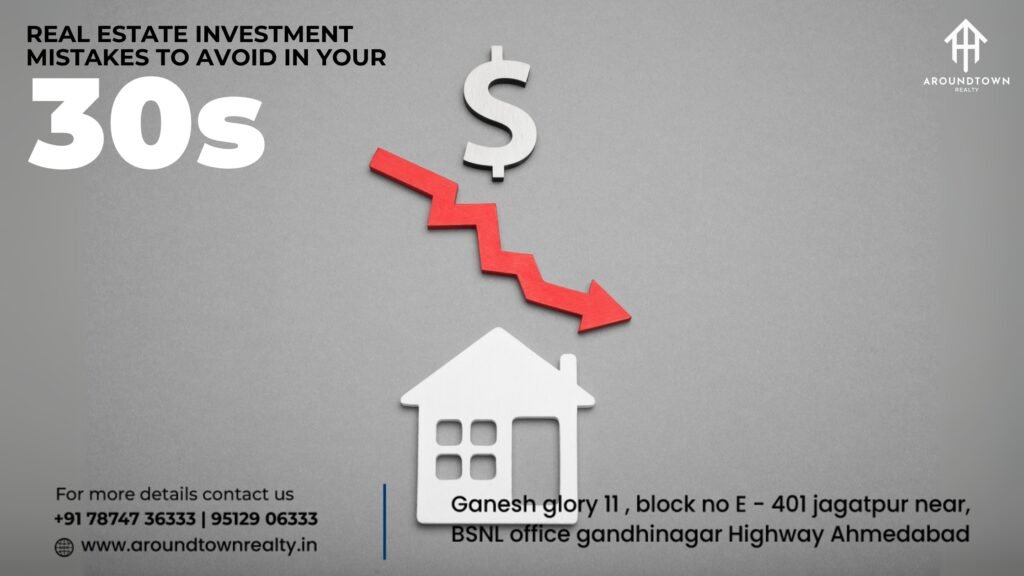Your 30s are often considered a pivotal decade in your financial journey. By this age, many people have established their careers, gained some financial stability, and are looking to make smart investments that will help secure their future. Real estate, with its potential for long-term appreciation and income generation, often becomes a primary focus for those in their 30s. However, while investing in real estate can be a lucrative way to build wealth, it also comes with its fair share of pitfalls. Avoiding common mistakes in your 30s can make a significant difference in the success of your investment portfolio.
This blog will dive deep into the real estate investment mistakes that people in their 30s often make and offer practical tips to avoid them, ensuring that you make informed, strategic decisions that help you achieve your financial goals.
1. Failing to Do Proper Research Before Investing
One of the biggest mistakes investors make in their 30s is diving into real estate without conducting thorough research. While the allure of quick returns can be tempting, jumping into an investment without understanding the market or specific property can lead to costly errors.
Why It’s a Mistake:
Investing without research means you may overlook factors like market trends, neighborhood development plans, property values, rental potential, and even legal regulations. The risk is that you could end up with a property that’s not as profitable as you expected or, worse, a financial drain.
How to Avoid It:
- Research Market Trends: Analyze the current market and predict future growth by looking at factors like job growth, infrastructure development, and local real estate demand.
- Location, Location, Location: Focus on neighborhoods with strong growth potential, good schools, and a growing population.
- Understand the Property: Look into the property’s history, condition, and maintenance costs to determine if it’s a good fit for your long-term investment goals.
2. Overleveraging Your Investments
In your 30s, you may be tempted to purchase a property with a minimal down payment, especially if you’re confident in the potential of the property. However, taking on too much debt by overleveraging can create financial strain, especially if the property doesn’t generate the expected returns.
Why It’s a Mistake:
Overleveraging means taking on too much debt relative to your income and financial capacity. If you’re using excessive financing, a market downturn, or unexpected expenses could easily cause you to default on your loan.
How to Avoid It:
- Know Your Limits: Understand how much debt you can realistically afford and ensure that your monthly payments (including property taxes and insurance) align with your budget.
- Create a Cushion: Maintain an emergency fund separate from your investment properties to cover repairs, vacancies, or market fluctuations.
- Conservative Financing: Opt for manageable loan terms and a substantial down payment to reduce the amount of leverage on your investment.
3. Ignoring Property Management
Once you’ve acquired a property, it’s easy to think that managing it will be a smooth process. However, neglecting property management is a costly mistake. Whether you plan to rent out your property or keep it as a vacation home, proper management is key to ensuring consistent income and preserving the property’s value.
Why It’s a Mistake:
Poor property management can lead to vacancies, uncollected rent, costly repairs, and frustrated tenants. Without regular maintenance and proper tenant relations, your investment could lose value and require significant out-of-pocket expenses.
How to Avoid It:
- Hire a Property Manager: If you’re too busy to manage the property yourself, consider hiring a reputable property management company. They can handle day-to-day operations, tenant screening, rent collection, and maintenance.
- Regular Maintenance: Ensure that the property is well-maintained to avoid costly repairs and keep tenants happy. Regular checks and timely repairs can prevent larger issues in the future.
4. Underestimating the Total Costs of Ownership
One of the most common mistakes in real estate investment is underestimating the total costs associated with owning a property. Many first-time investors focus solely on the mortgage payment, failing to account for other ongoing costs such as property taxes, insurance, repairs, utilities, and management fees.
Why It’s a Mistake:
Overlooking additional costs can lead to negative cash flow, where the income from the property doesn’t cover your expenses. This situation can lead to stress and potential financial trouble.
How to Avoid It:
- Calculate Total Expenses: Before purchasing a property, account for all potential costs, including maintenance, taxes, insurance, management fees, and any HOA fees.
- Use a Property Investment Calculator: Online tools can help you estimate the total costs and potential returns, providing you with a clearer picture of the property’s profitability.
READ THIS FOR MORE, Legal Aspects of Joint Property Ownership in Ahmedabad
5. Failing to Diversify Your Real Estate Portfolio
Real estate is often considered a relatively stable investment, but putting all your eggs in one basket can be risky. In your 30s, it’s crucial to diversify your investments to mitigate risk and ensure that you are not overly exposed to one property type, location, or strategy.
Why It’s a Mistake:
Focusing on a single property or investment type—whether residential, commercial, or vacation rentals—can make your portfolio vulnerable to market shifts. A downturn in one sector or area could significantly affect your entire investment strategy.
How to Avoid It:
- Explore Different Property Types: Consider investing in a mix of property types, such as residential, commercial, or even short-term rental properties. Each type has different risk profiles and income potential.
- Vary Locations: Don’t limit yourself to one geographic area. Properties in different locations may perform differently, protecting you from regional downturns.
- Consider REITs: Real Estate Investment Trusts (REITs) offer a way to invest in real estate without owning physical property, allowing you to diversify your investments further.
6. Focusing Only on Capital Appreciation
While capital appreciation (the increase in property value over time) is a primary reason many people invest in real estate, it’s a mistake to rely solely on this factor. Focusing too much on the potential for value growth and ignoring other aspects of investment—such as cash flow—can leave you in a tight spot if the market doesn’t behave as expected.
Why It’s a Mistake:
If property values don’t appreciate as you hoped, you could be stuck with a property that isn’t generating income, leading to financial strain. Also, relying solely on appreciation may delay returns, making it harder to achieve short-term financial goals.
How to Avoid It:
- Balance Appreciation with Cash Flow: Look for properties that offer steady rental income in addition to potential for appreciation. Positive cash flow ensures that the property generates income regardless of market trends.
- Understand Market Cycles: Real estate markets can fluctuate, so it’s important to have realistic expectations about capital appreciation and focus on properties that provide consistent cash flow.
7. Failing to Plan for the Long-Term
Real estate is a long-term investment, and one of the most significant mistakes you can make in your 30s is failing to plan for the future. Not having a clear long-term strategy can lead to impulsive decisions that don’t align with your overall financial goals.
Why It’s a Mistake:
Real estate investments require patience. If you’re thinking only about short-term gains or quick profits, you may end up selling properties prematurely, missing out on long-term benefits.
How to Avoid It:
- Set Clear Goals: Define what you want to achieve with your real estate investments. Whether it’s building a portfolio for retirement, generating passive income, or securing assets for future generations, having a goal will guide your investment decisions.
- Think Long-Term: Avoid the temptation to flip properties quickly. Instead, focus on investments that will appreciate over time and provide long-term wealth-building opportunities.
Conclusion: Learn from the Mistakes of Others
Investing in real estate in your 30s offers tremendous potential, but to maximize its benefits, it’s essential to learn from the mistakes of others. By avoiding the common missteps outlined above—such as failing to research, overleveraging, neglecting property management, underestimating costs, and not diversifying—you’ll set yourself up for long-term financial success.
Ready to start your real estate investment journey?
At Around Town Realty, we provide expert guidance to help you avoid common mistakes and make smart investment decisions. Contact us today to explore opportunities in the real estate market and take the first step toward securing your financial future.
FAQs
- What is the most important factor to consider when investing in real estate? Location, market trends, and property condition are critical to making an informed investment.
- How can I avoid overleveraging in real estate? Ensure that your loan payments are within your budget and have a substantial down payment to reduce the amount of debt you take on.
- What is the best type of property to invest in for steady cash flow? Residential rental properties and multi-family units are great options for consistent rental income.
- How can I diversify my real estate portfolio? Consider investing in different property types (residential, commercial) and locations, or explore REITs for broader exposure.
- What should I do if my property isn’t appreciating as expected? Focus on generating positive cash flow from the property, and consider holding it long-term for future appreciation.









